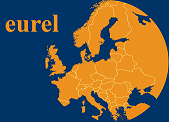This paper deals with the movement known as “Patriotic Europeans Against the Islamisation of the Occident” (PEGIDA). Since its beginning in 2014, the movement has shown itself to be resilient, despite external threats posed by political rivals, or internal turmoil. Rejuvenated by the migrant crisis and Islamist attacks which dominated European media and agendas throughout 2015, PEGIDA was able to reach out to other like-minded European movements. Thus, on the 23rd of January 2016, the leaders of the German PEGIDA, together with allies from other European countries, signed a declaration in Prague. Motivating its existence through what the signatories understand as a potential imminent Islamisation, the declaration exhorts resistance and opposition against “political Islam, extreme Islamic regimes and their European collaborators”. The major implication of this document can be found in the ultimate aim of networking the various groups of “European patriots” to “Festung Europa” (Fortress Europe).
This paper argues that the emergence, expansion, and resilience of PEGIDA is symptomatic of the accelerated disintegration of the political establishment which was formed during the postwar period. At the same time, the primary ideological features of the movement represent – alongside other developments, a potentially paradigmatic change in the European political spectrum, with possible effects in this respect including the strengthening of nativist movements in the West and the potential closing of Eastern Europe to the Western liberal democratic model. Ideologically, PEGIDA can thus be considered as a manifestation of a deepening commitment by European nativist factions, as well as a result of an increasing political polarisation. Appointing itself the defender of Western Civilization and of its Judeo-Christian legacy from what it sees as the perils of Islamisation, PEGIDA makes a central use of religion in a confrontation which may lead to a dramatic, irreversible change of the current European political configuration.
- Poster

 PDF version
PDF version
